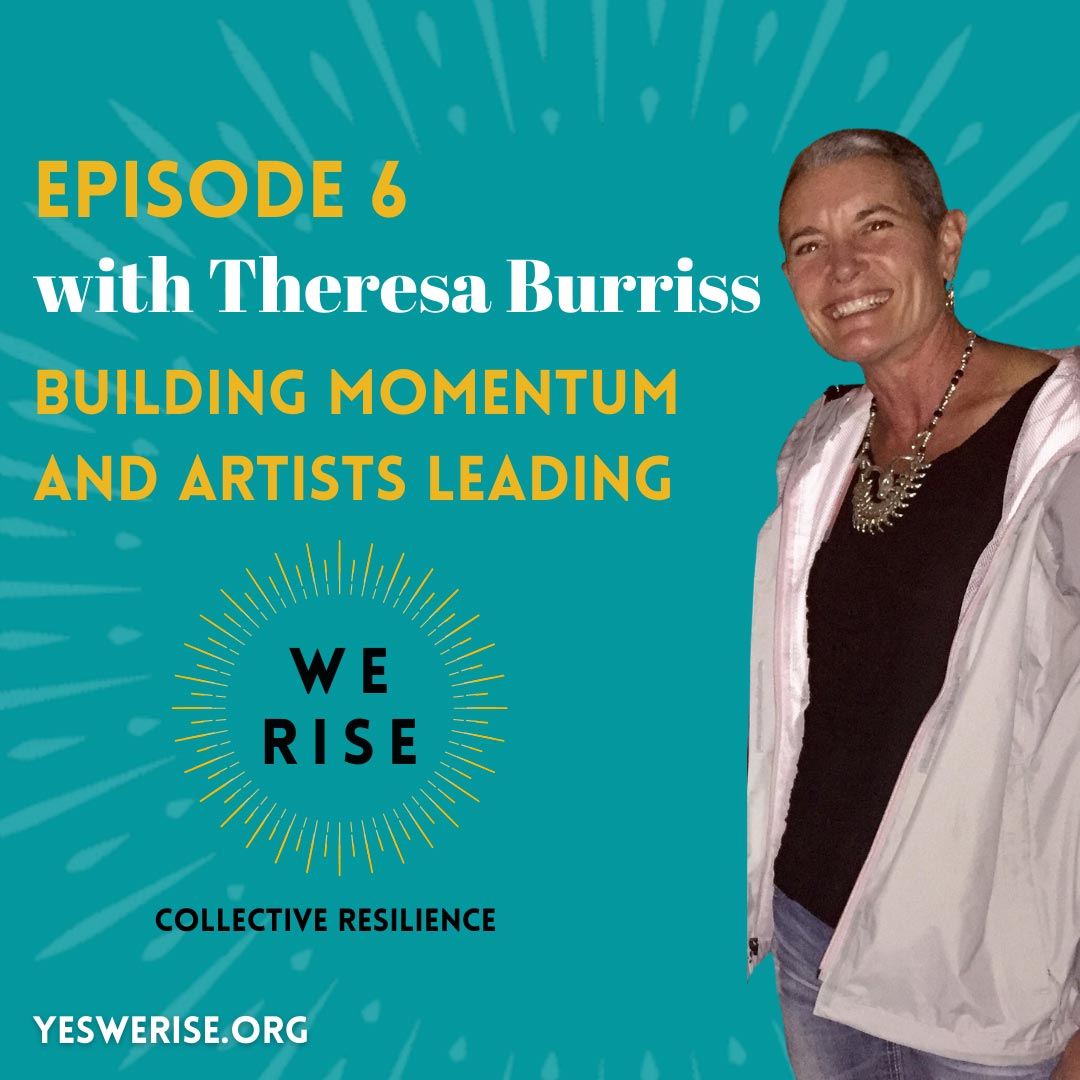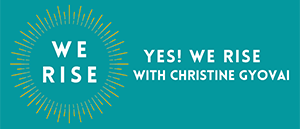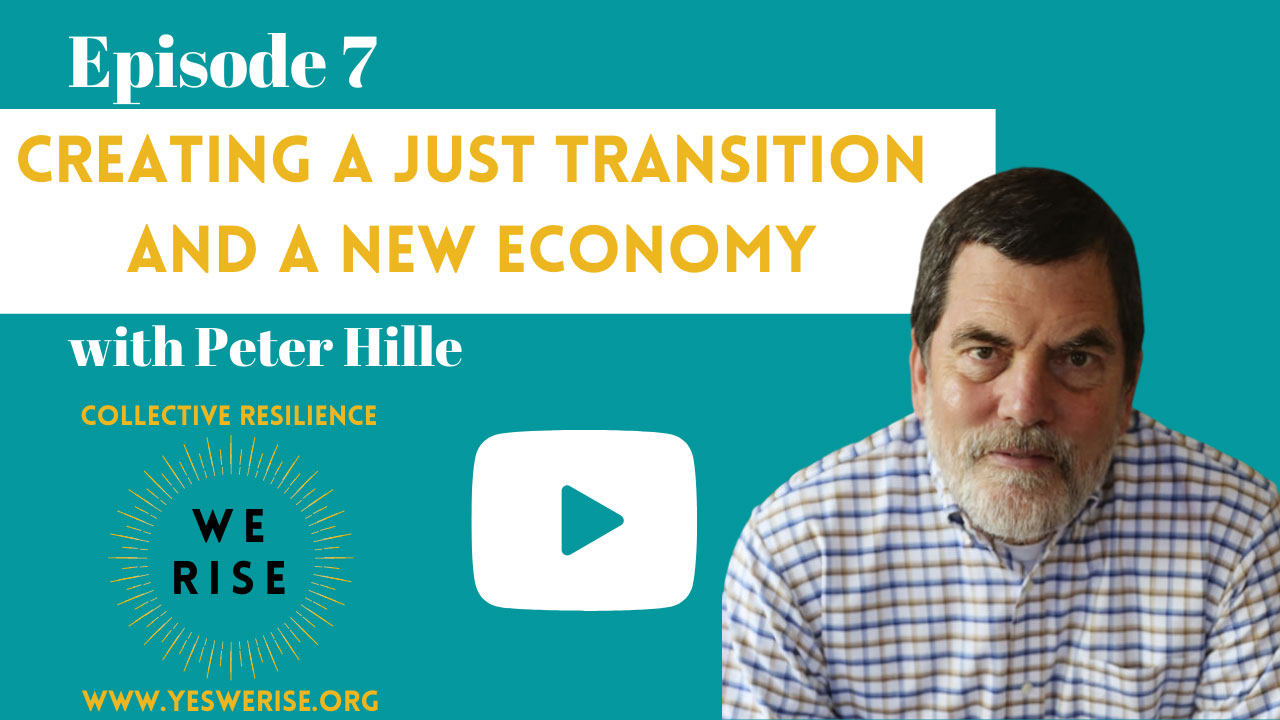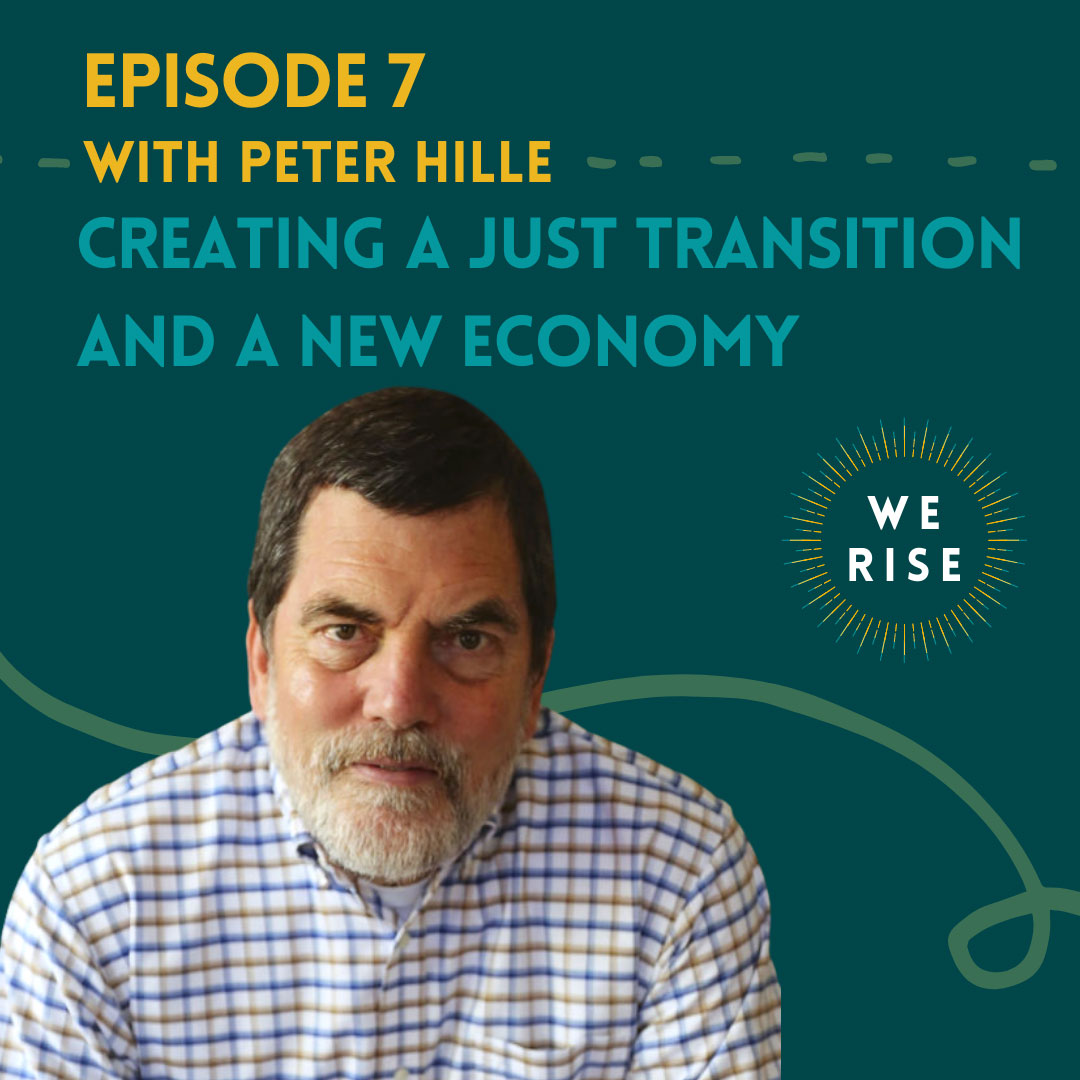
Episode 7:
Creating a Just Transition and a New Economy with Peter Hille
Episode 7 Description
In this episode of the We Rise Podcast, Christine interviews Peter Hille, President of The Mountain Association. Peter shares what it takes to create a new economy and the empowerment of seeing progress. Learn about a “just transition” and the importance of starting at the local level to create lasting and sustainable change for a community.
The Mountain Association is a 44 year old non-profit organization in Eastern Kentucky. They invest in people and places in Eastern Kentucky to advance a just transition to a new economy that is more diverse, sustainable, equitable and resilient.
Download the show Notes
find us on youtube
Key takeaways
Creating a new economy through a just transition
Peter opens up this episode explaining how the Appalachian coalfields fueled much of the growth of the entire nation. Before mining, their timber was sourced to build homes on the east coast of the United States. Appalachians also played a significant role in the labor force of Midwestern factories, as well as soldiers fighting in wars. This region has continuously given and contributed to the growth and the prosperity of the United States.
Economists call this continuous giving the “resource curse”. When a place or region is rich in natural resources, it often eventually becomes impoverished as a result of resource extraction. In the process of extraction there is provision of work in the community, however, it is temporary, and it often does not create lasting prosperity for a region.
To repay this contribution, Peter talks about the importance of a “just transition” and new investments. A just transition in coal mining communities means recognizing the debt and sacrifices that have been made. From sacrificing their lives and health to water and ecosystems to schools and government, Appalachians have continuously given, often to the detriment of their community’s well-being.
As the coal industry became more and more mechanized, less workers were needed, resulting in a depletion of the population in many communities. Some individuals left for college or a career, others because there was no longer work available for them.
Peter talks about the importance of community-driven development to welcome back those who have left and draw in new families and individuals. This starts with the development of economic opportunities including jobs, accessibility of food, health care, clean energy, and sustainable forestry, and other opportunities.
Part of Peter’s work focuses on providing funding and resources to help small businesses meet the needs of the current and future community members. For example, In Salyersville, Kentucky, a grocery store had dreams of expanding their space into a new, larger location. The Mountain Association assisted them in implementing energy efficiency retrofits for their cooling and HVAC system, keeping business costs down. The store now provides a larger produce section, specialty foods, and more provisions to the community.
Another area of focus is tourism. Mountain Association has created a curriculum for folks to have their own Airbnb. In this curriculum, they instruct hosts to have a list of local restaurants and unique activities in their area. These subtleties provide a special experience for Airbnb guests, increasing spending and the likelihood of them returning.
Peter explains that it is often in the small steps that transformation happens. When a person or community can see progress toward the vision, there is a level of empowerment that takes place. They begin asking themselves, “What else is possible?” or “What’s next?”
Building prosperity through resilience and hard work
Having a vision is often how a community finds common ground to be able to work together. When people are asked at the core level what they want for their families and community, it tends to include basic human needs: food, health, safety, and opportunities for their children. Finding these commonalities can become the catalyst for economic change.
Peter describes the bedrock of resilience in Eastern Kentucky and Central Appalachia as “the sense of community that people help each other.” Taking this concept of resilience in conjunction with a vision that includes everyone, is what enables the development of a new economy that works in favor of the entire community.
To create this new economy, it is important to talk less about creating jobs and more about building prosperity for the people in the community. This looks like developing small businesses within a town, such as a coffee shop or a music venue. This growth can elicit confidence and inspiration for other folks to start a business of their own.
Peter believes in the importance of starting from the ground up and working locally, then out. If small businesses are created within the town, by locals, and they begin to flourish, jobs will be created by default. Additionally, this prosperity will not be contingent on outsiders or resource extraction.
Central Appalachia is made up of numerous sole proprietors and partnerships from beauty salons to car repair shops, from lawn maintenance workers to plumbers. Many of these have been supported by The Mountain Association.
Peter’s friend and mentor Vaughn Grisham is the chronicler of the story of Tupelo, Mississippi. Tupelo is a great example of community economic development. Vaughn brings people from all around to experience and learn the incredible story of the town. One consistent realization visitors have from the experience is the amount of hard work it takes to develop and grow a flourishing community.
An example of resilience, hard work, and impact is Gwen Christon from Letcher County, Kentucky. Over thirty years ago, Gwen was a cash register at a grocery store, and she decided to participate in WINGS, a program created by The Mountain Association for women entrepreneurs. Gwen now owns the grocery store and has focused on improving the store. Ten years ago, The Mountain Association helped her improve the store lighting with an energy efficient retrofit, followed later with a similar retrofit for her cooling and HVAC system. She most recently invested in solar panels for her grocery store as well. As she has grown her business, other businesses in the area have been inspired to do the same.
The importance of collaboration and starting local
An important experience for Peter in understanding the historical and current impact of colonialism on our economy was a conference he attended in Alaska, led by indigenous people and young folks. Through this event and also working with colleagues in Arizona on the Navajo and Hopi nations, Peter has become very aware of the catalyst colonialism has been for the country’s entire economic approach, which he describes as “one of exploitation and extraction.”
Peter expresses the importance of macro and micro level work. In order to have an economy that works in favor of everyone, it needs to start on the local level, so that everyone’s needs are taken into consideration. A friend of his, Winona LaDuke, referred to this as relocalizing the economy.
A recent project Peter is involved with is the development of solar panels. He agrees on the importance of large-scale renewable energy, but it also needs to work for the community that it is being built in. The Mountain Association has pushed for not only the solar panels to be brought to their community, but for panels to be added on a local level to schools and municipal buildings.
This ensures that not only will the investors of the panels receive financial return, but that locals also benefit from the project. Additionally, they have pushed for the workers to be trained in small scale solar panel installation, adding new skills and resources within that community. Peter believes that it is possible for the region to become energy producers again, but for a new economy, “reenvisioning what it means to be energy independent.”
This type of transformation requires support from many different organizations. Peter shares some of the organizations that are part of this important network in Eastern Kentucky and Appalachia. Kentuckians for the Commonwealth focus on organizing. Appalshop focuses on storytelling and communications. They have a radio station, music festival, touring theatre group, and programs to educate youth on film making, along with thousands of documentaries about the region. The Brushy Fork Institute focuses on leadership development. All of these and more are working in tandem with The Mountain Association to create change.
Throughout COVID, Peter and The Mountain Assocation have had to learn how to pivot and be innovative in serving both their clients and the business they work with, as well as their employees. It was through this process he began to deepen his understanding that in order for the plans and the work to be done, people need to be taken care of first.
Peter emphasizes the importance of seeing the person, and the humanity of each individual. This could be in the person borrowing the money or the co-worker providing services to support the business. When the individual is taken care of, the bigger vision will also be realized.
notable quote from Peter
“Narrative change is a big part of what we see has to happen across the board, both outside of the region and inside of the region. And the stories that we tell each other about the places where we live, and the things that we focus on. We create the reality that we live in, by the way that we frame it to ourselves, and the way that we frame it to each other.”
Links/resources mentioned
Some organizations collaborating with The Mountain Association include: The Brushy Fork Institute, Appalshop, Kentuckians for the Commonwealth.
Learn more about Gwen Christon and her store, Isom IGA.
The Yes! We Rise podcast is produced by Dialogue + Design Associates, Podcasting For Creatives, with music by Drishti Beats.
Follow Yes! We Rise on Facebook and Instagram
Please rate, review, and subscribe to the podcast so we can continue spreading our message far and wide. Find our email list at the website: www.yeswerise.org.
Thanks for listening.
Don’t miss an episode — follow us on Spotify and subscribe via Apple Podcasts, Stitcher, or Google Play, and please leave us a review wherever you listen.
Jump to:
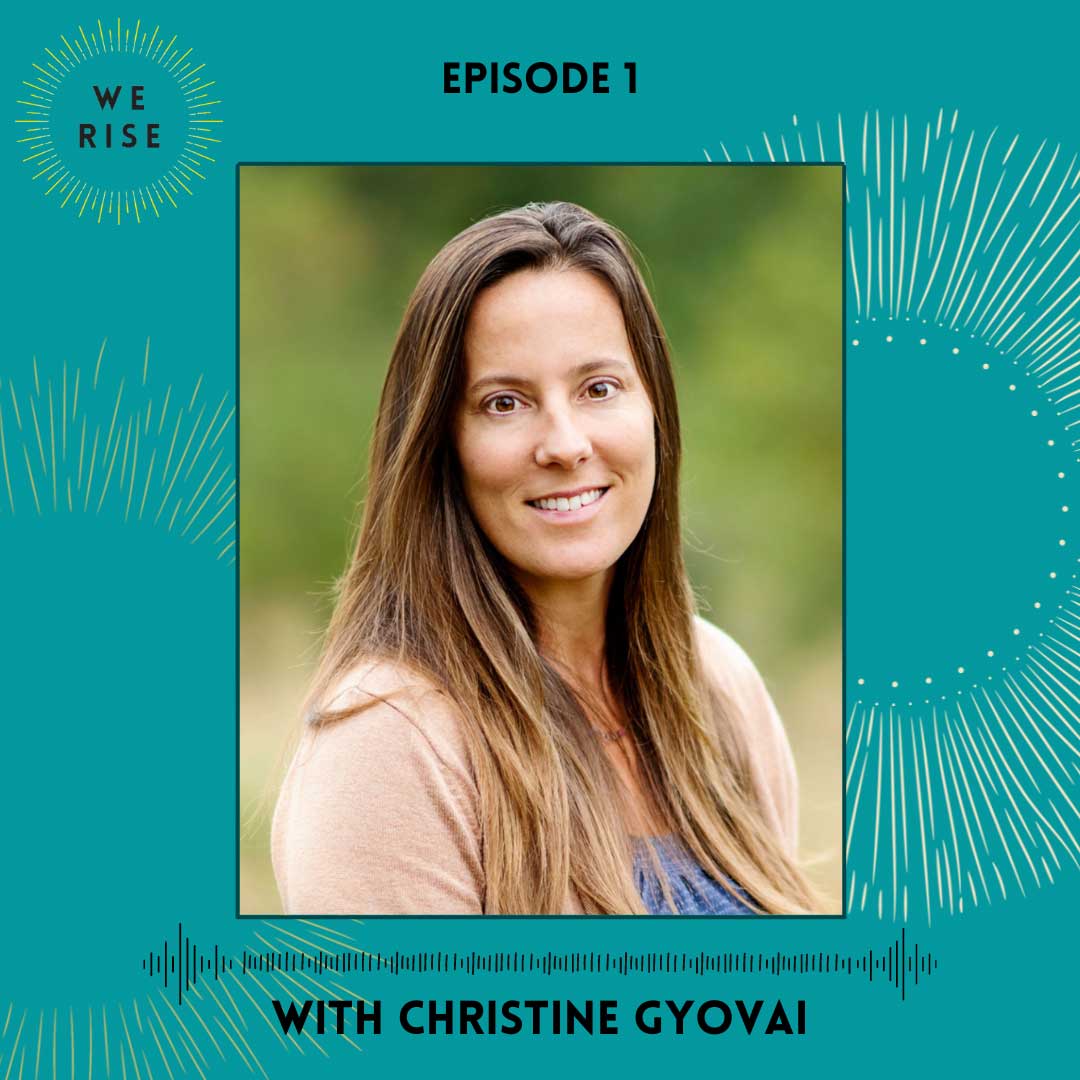
Episode 1
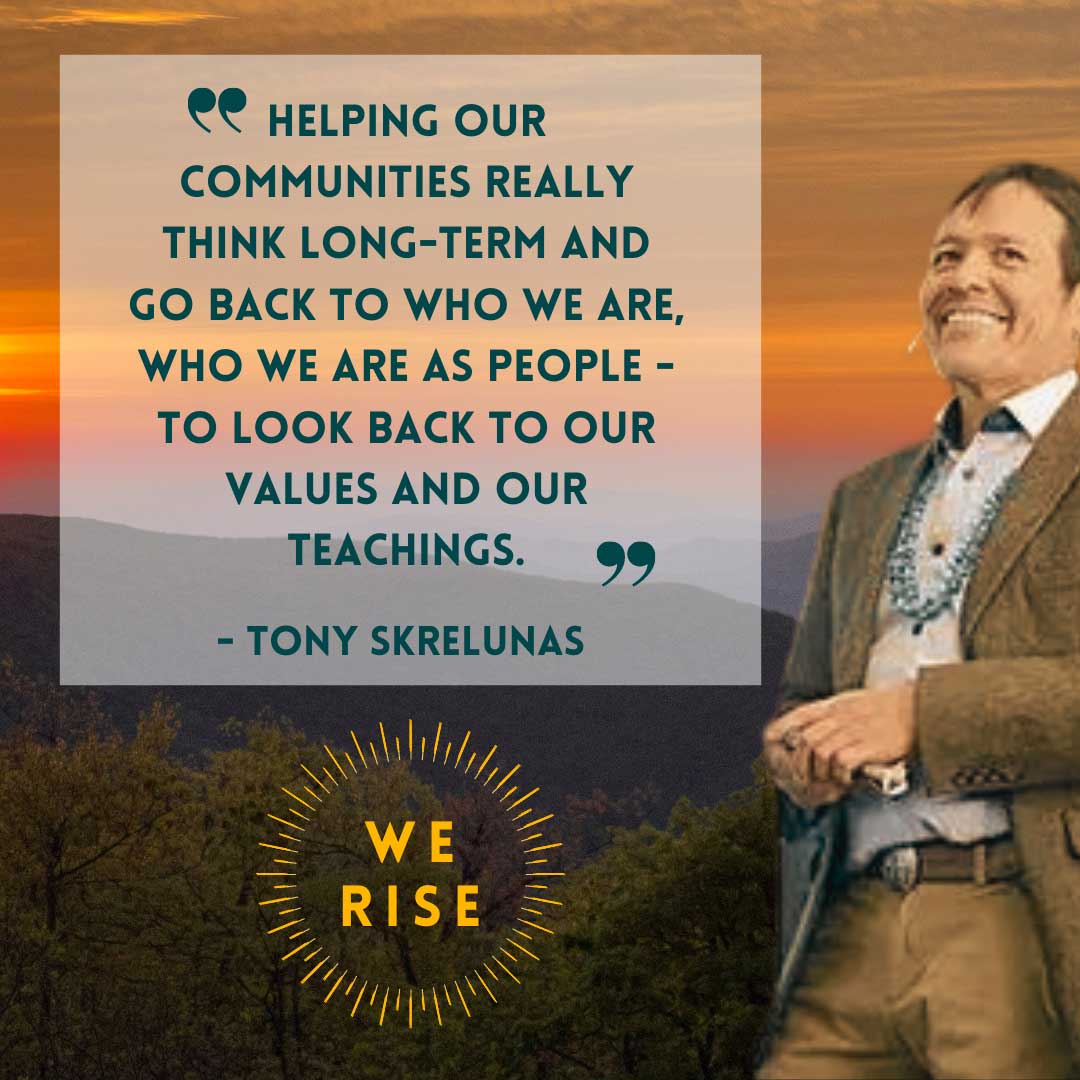
Episode 2
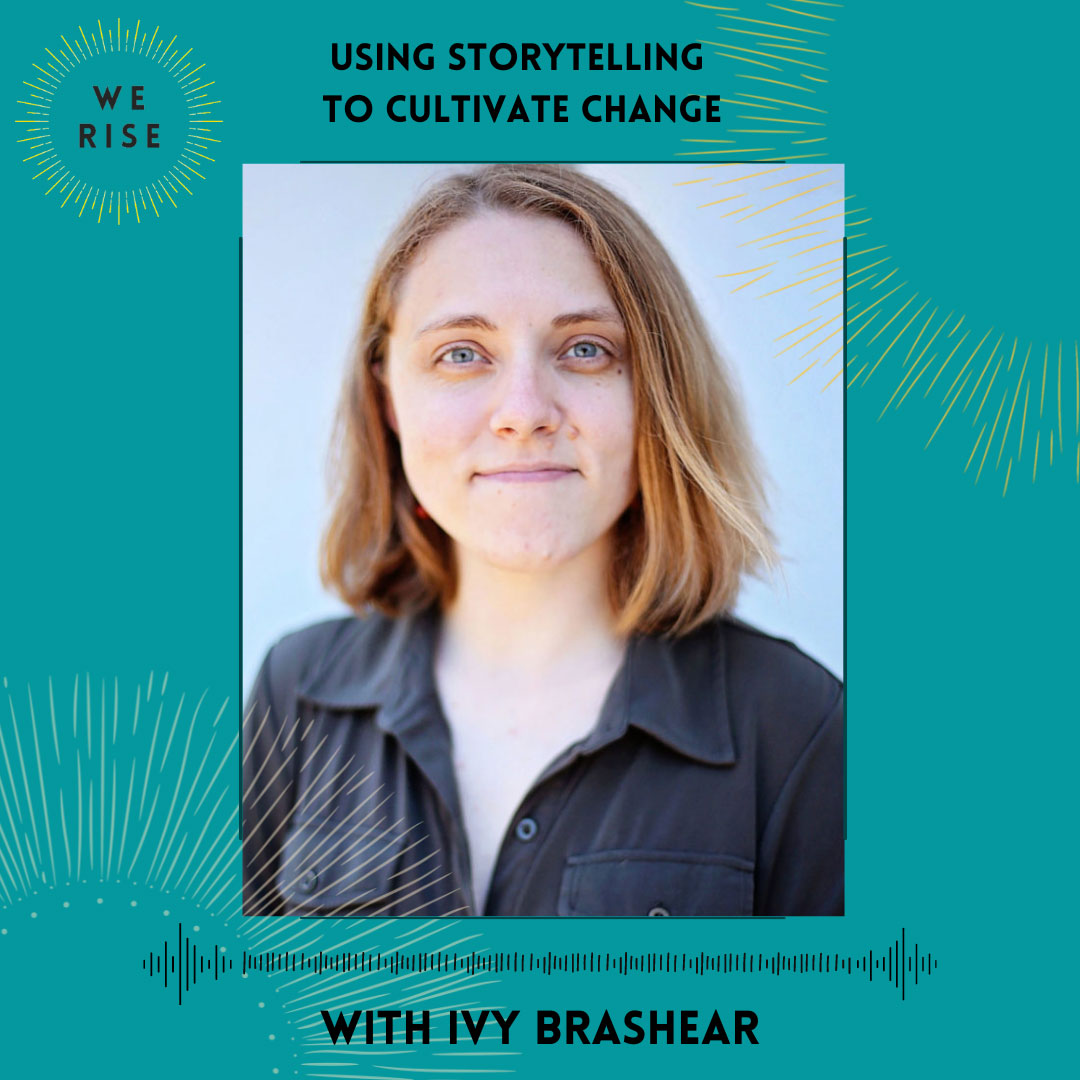
Episode 3
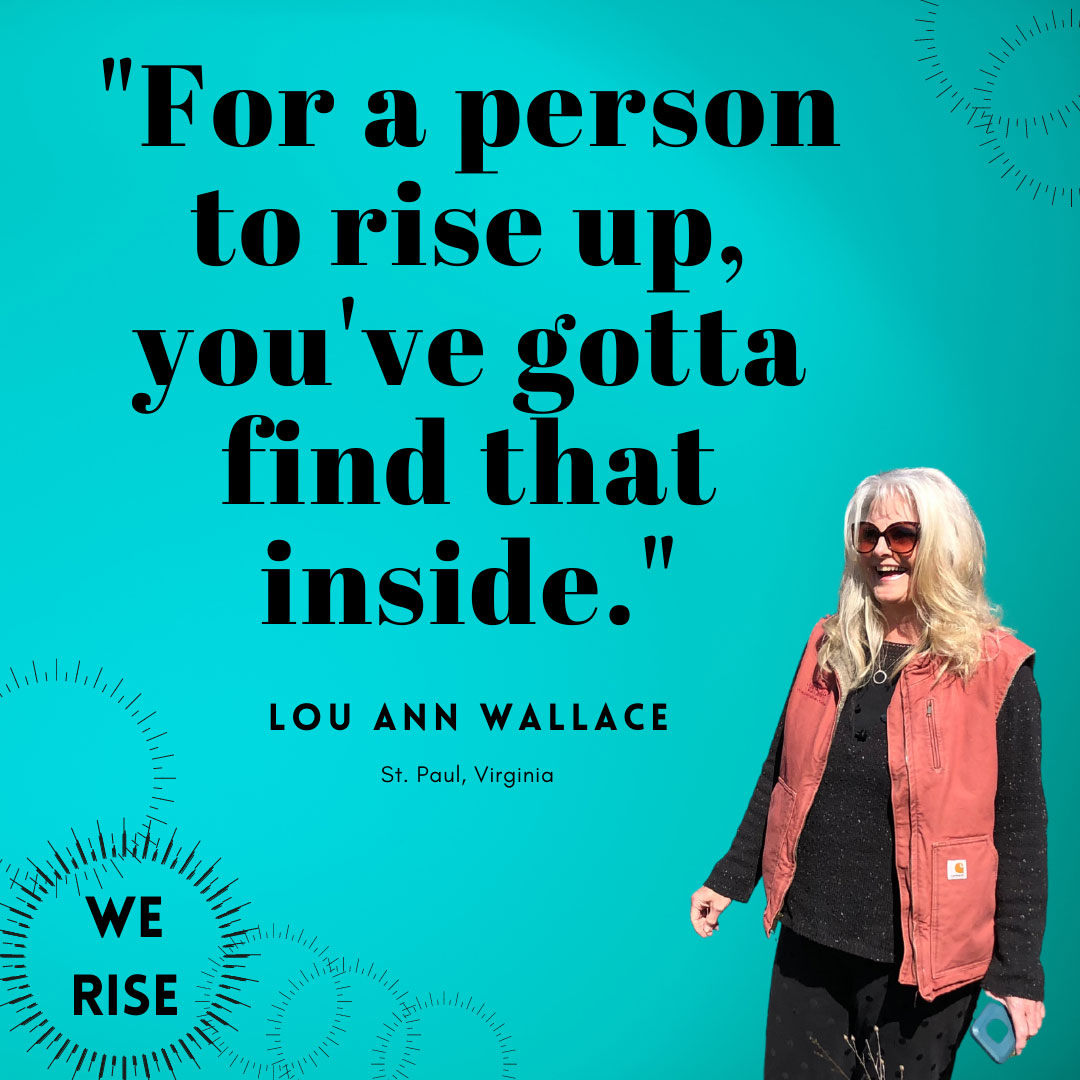
Episode 4
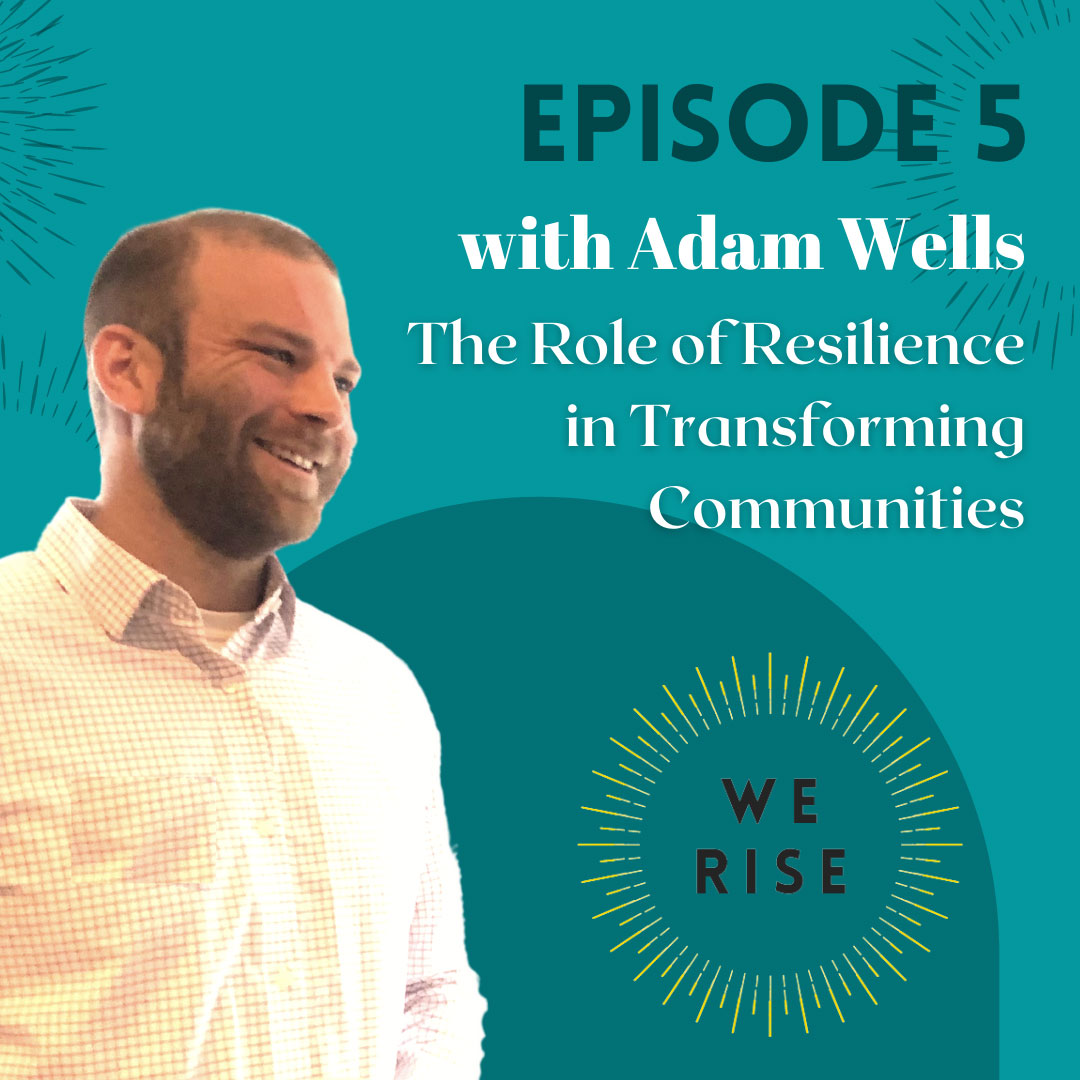
Episode 5
